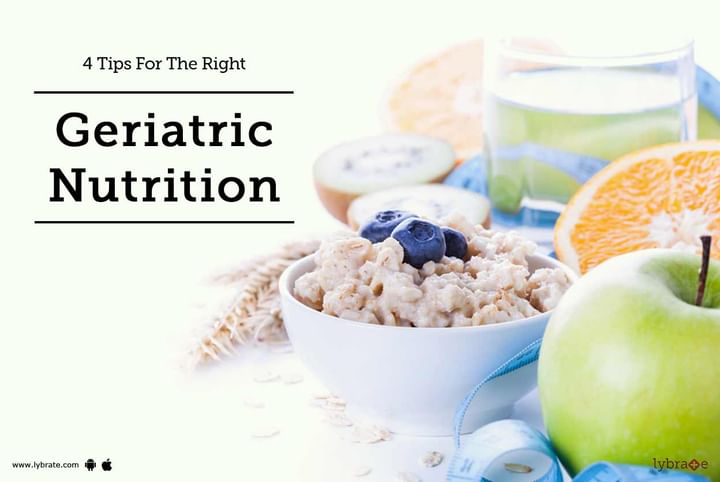4 Tips For The Right Geriatric Nutrition
Special nutritional needs are often required in special circumstances. Unlike adults from 20 to 60, children and elderly people have specific needs as their physical requirements are different. Just like pregnant women need tailor-made diets for their specific needs, children and elderly people also require appropriate diets without too much variation.
The requirement for geriatric or elderly nutrition:
As the body ages, certain functions within are slowed down and thus, the processes are not able to completely recuperate and replenish what was lost. Certain functions are affected more than others and hence, need specific nutrients to regenerate.
Tips for Geriatric Nutrition:
Let's take a look at some of the specific diet requirements as well as certain items, which should be avoided.
1. Consumption of calcium rich foods - Bones are a part of the human body that tend to suffer a lot of wear and tear and they start showing signs of weakening after 60. It is thus, important to replenish calcium in the body to help the bones get their building blocks. Some examples of calcium-rich foods are almonds and green leafy vegetables like kale. Dairy products are also good as long as the fat content within them is low.
2. Keeping the body hydrated - Although physical activity reduces with age, dehydration can still occur within senior people and thus, it is important that they remain hydrated. Simply drinking water may not be enough and juices or other water-rich foods such as watermelons should be used to supplement for hydration.
3. Lessening sodium within the body - The presence of excess sodium in the body can cause blood pressure to shoot up and result in high blood pressure, which may then further result in more ailments like strokes. It is pertinent that foods rich in sodium such a red meats be lessened or cut out of the diet altogether.
4. Lessening sugar consumption or any other foods that may exacerbate diabetes - Another factor to consider is the consumption of sugar and sugar-filled products. Not just for diabetics, but elderly people have a tendency to develop high blood sugar and hence, it is prudent to reduce sugar intake. In case you have a concern or query you can always consult an expert & get answers to your questions!



+1.svg)
